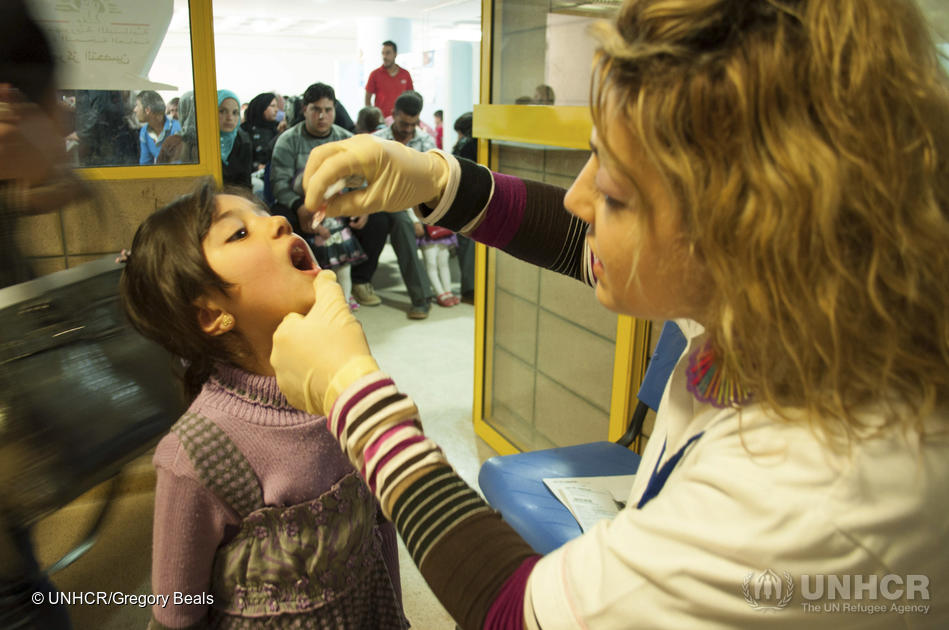Since March 2020, routine childhood immunization campaigns have been disrupted on a global scale. In a survey of 800 immunization professionals from 129 countries by the World Health Organization (WHO), UNICEF, the Sabin Vaccine Institute’s Boost Community (Boost) and Gavi, the Vaccine Alliance, respondents in more than half of the countries noted moderate-to-severe disruptions to immunization programs, or a total suspension of services.
These disruptions are expected to put approximately 80 million children across the world at risk of missing out on essential vaccinations including those protecting against deadly disease such as measles, mumps, rubella, whooping cough, polio and more. These gaps in vaccination could lead to an enormous secondary effect on child health and threaten decades of hard-won progress against vaccine-preventable morbidity and mortality.
Immunization professionals, who already faced limited resources, isolation from peers and mentors, and burnout, have seen their challenges compound in recent months as resources are reallocated, frontline health professionals diverted to respond to the crisis and health systems overstretched.

In recognition of the essential role immunization professionals play in upholding robust and responsive health systems, the Sabin Vaccine Institute (Sabin) launched Boost, a global community for immunization professionals to connect, learn and lead. The platform, originally created in 2013 as the International Association of Immunization Managers (known as IAIM), was renamed and relaunched in 2020 to better reflect the important role of immunization professionals around the world, generate greater action, and mark a shift in our approach. Boost was developed in close collaboration with immunization professionals to echo their needs and goals, and their direct input continues to guide our actions.
Boost serves immunization professionals by providing access to trainings and resources around management and leadership as well as a community of peers and experts to share knowledge and experiences. Since its founding in early 2020, Boost has grown to a membership of nearly 900 immunization professionals from more than 100 countries.
During the era of COVID-19, Boost is empowering immunization professionals with the tools and resources to serve as key advocates for themselves and for routine immunization. This community and Boost’s mission of equipping immunization professionals to connect, learn and lead are more critical than ever. This time is a global call for adaptability, for forging through uncertainty and for leadership outside of traditional means of authority. Though the challenge can feel overwhelming at times, our members are also eager for information, training and collaboration. They are resilient and they are committed to protect the health of communities around the world by ensuring they receive routine immunization services.

Challenges: obstacles to immunization coverage arising from COVID-19
- Increased fear among caregivers who remain cautious for their children’s health. The perception of health clinics as ‘hotspots’ for COVID-19 activity has seen fewer parents visit health centers to get their children vaccinated. Immunization professionals across the world have reported that parents’ collective fear about exposing their children to the virus is leading some to forego usual vaccine check-ups. A recent study found that in the United States, measles vaccinations declined sharply in the weeks that followed the declaration of a national emergency in March 2020, and cited caregiver concerns about COVID-19 as a potential reason.
- An ‘infodemic’ of misleading or inaccurate information is making it difficult for the general population to identify evidence-based information and make the best decisions. An influx of misinformation about vaccines in development for COVID-19 has the potential to contribute to a worrisome pattern of vaccine hesitancy—the reluctance or opposition to vaccination despite the availability of safe and effective vaccines.
- A lack of available resources, including space, equipment and personnel has prevented many immunization programs from running with regularity. In the WHO survey of immunization professionals, a respondent from Kenya noted a wing of the hospital previously dedicated to general health and routine immunization had been sectioned off to receive COVID-19 patients, leaving no available space to receive patients for routine immunization services. In the same survey, a respondent from Nigeria shared that the supply of personal protective equipment was dwindling, making it difficult and dangerous for immunization professionals to conduct direct outreach efforts.
- Difficulty reaching remote areas is a consistent challenge in immunization work. In Pakistan, traversing rough terrain and reaching isolated communities has thwarted polio eradication efforts prior to COVID-19. With a pandemic at play, reaching vulnerable and remote populations is even more difficult, particularly with limits on travel and mobility, a barrier noted by survey respondents from Burkina Faso.

Approaches and adaptations: taking steps forward
Despite the challenges, immunization professionals are leaning into flexibility, driving forward dynamic solutions and taking action to ensure that immunization continues.
- New technical guidance has become available to assist immunization professionals in coping with the current circumstances and planning for the future. For instance, in May 2020, WHO released a framework to consider when implementing immunization campaigns under COVID-19, calling for a sustained, committed and dynamic response. The framework urges measures such as effective prevention and control, organized and consistent coordination, and effective planning to ensure equitable access to vaccines. In addition, Boost partnered with WHO to deliver a comprehensive webinar on infection prevention and control measures that immunization professionals can take when delivering services amid COVID-19.
- Community sensitization and communication are effective measures that programs across the world are using. Access to accurate and timely information can have a direct impact on a caregiver’s decision-making process around vaccinations, and community sensitization helps empower them to make choices that prioritize health. In Nigeria, the door-to-door dissemination of informational materials has better informed populations across districts about the COVID-19 response, allowing the country to continue driving routine childhood immunization safely at health centers. Distinguishing routine immunization from COVID-19 activities and working directly with community leaders has enabled immunization professionals in several countries to continue safely administering vaccinations against deadly vaccine-preventable diseases.
- Rapid adaptation will be necessary as more data is collected from immunization professionals on the ground. WHO, in coordination with Boost and partners, is releasing regular surveys to gather information on the status of immunization programs across the globe. The surveys measure disruptions to immunization programs with questions on changes in supply chain, resources and other priorities. These surveys will help improve immunization surveillance and support immunization professionals in detecting unreached groups and improving the equity and efficiency of service delivery. We plan to respond to this real-time feedback with new technical guidance, expert discussions and resources.

Moreover, Boost’s online platform serves as a forum for immunization professionals to adapt, innovate and exchange lessons learned. Boost’s first major training on adaptive leadership, which launched on May 26 in partnership with The Geneva Learning Foundation and Adaptive Change Advisors, is equipping learners with the tools they need to lead consequential change within immunization programs. Adaptive leadership, the backbone of the course, is a set of strategies and techniques employed by individuals to mobilize change in challenging and uncertain contexts.
Two weeks into the six-week course, participants have determined their most pressing leadership challenges and are identifying solutions grounded in adaptive leadership, be it community sensitization materials, more effective surveillance tools which will help facilitate improved coverage or leadership frameworks to advance internal decision-making. On the discussion boards, learners from around the world share their experiences and help each other brainstorm innovations.
In spite of the many obstacles to immunization activity that are exacerbated under COVID-19, optimistic points of leadership through the uncertainty exemplify what it means to provide care and prioritize health for all. Routine child immunization is one of the safest, most affordable and most effective foundations to a healthy life. As the immunization community continues to mobilize and take action, their work will not only help us navigate through the pandemic, but protect health and wellbeing for generations to come.
Join Boost
Boost is open to all professionals and partners working in the immunization field. Register on the website to join the community today.




